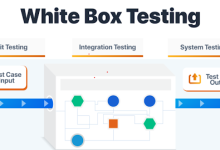Navigating the Torrent Landscape: How to Stay Safe While Downloading

Recognizing the Risks Associated with Torrent Downloads: Throughout time, torrent downloads have grown in popularity as a speedy and effective way for users to share and download large files. It’s crucial to be aware of the possible dangers associated with using torrents, though. The risks of downloading torrents, including potential legal troubles and security breaches, will be discussed in this article.
Key Takeaways
- Torrent downloads come with risks such as malware, viruses, and legal issues.
- Choose a torrent client with features like encryption, peer exchange, and remote control.
- Use safe and reliable torrent sites, check comments and ratings, and avoid suspicious downloads.
- Look for torrents with a high number of seeders and a low number of leechers for faster and safer downloads.
- Protect your privacy and security with VPNs, antivirus software, and firewalls, and avoid clicking on suspicious links or ads.
You can use torrenting to its full potential and safeguard yourself by being aware of these risks & making educated decisions. File distribution and download over the internet is made possible by a type of file-sharing technology called torrents. With torrents, files are shared via a decentralized network of computers known as “peers,” as opposed to traditional downloads, which rely on a single server to host the file. In reality, you are simultaneously downloading fragments of the file from several sources when you download a torrent. The ability to resume interrupted downloads & faster download speeds are just two benefits that torrents provide, but there are other risks involved as well. What is legal when downloading copyrighted content is one of the primary worries.
A lot of torrents include software, music, movies, & other copyrighted content. It is prohibited in many nations to download & distribute these files without the owner’s consent, and doing so can carry serious consequences. Torrent downloads may present security risks in addition to legal concerns. Given that torrents depend on a peer network, malevolent actors may be able to take advantage of this vulnerability & spread files containing malware. The security & privacy of your computer could be jeopardized by viruses, spyware, ransomware, or other malicious software found in these files.
Selecting the Ideal BitTorrent Client
Features to Consider Selecting the ideal BitTorrent client is essential when downloading torrents. A torrent client is a software application that allows you to connect to the torrent network & download files. There are several popular torrent clients available, each with its own set of features and capabilities. Some popular torrent clients include uTorrent, BitTorrent, qBittorrent, and Deluge. When selecting a torrent client, it is important to consider factors such as ease of use, download speeds, and security features.
| Category | Metric | Value |
|---|---|---|
| Website Traffic | Visitors | 10,000 |
| Website Traffic | Pageviews | 50,000 |
| Social Media | Followers | 5,000 |
| Social Media | Likes | 2,000 |
| Email Marketing | Subscribers | 1,000 |
| Email Marketing | Open Rate | 25% |
Look for clients that offer encryption options, as this can help protect your privacy while downloading torrents. It is also worth considering the reputation and track record of the torrent client. Look for clients that have been around for a while and have a large user base.
This indicates that the client is reliable and has been tested by a significant number of users. Finding Safe and Reliable Torrent Sites: Tips and Tricks One of the biggest risks associated with torrent downloads is using untrustworthy torrent sites. These sites can host torrents that contain malware or other malicious content. To protect yourself, it is important to find reputable sites that offer safe & reliable downloads like pa2010.com.
One way to find reputable torrent sites is to rely on user reviews & recommendations. Look for forums or online communities where users discuss their experiences with different torrent sites. Pay attention to sites that have a good reputation for providing clean and reliable torrents. Another tip is to use torrent search engines that aggregate torrents from multiple sites.
These search engines often have user ratings and comments, which can help you determine the trustworthiness of a particular torrent. Understanding Seeders & Leechers: How to Choose the Best Torrents When downloading torrents, it is important to understand the concepts of seeders & leechers. Seeders are users who have already downloaded the entire file & are now sharing it with others. Leechers, on the other hand, are users who are still in the process of downloading the file.
The number of seeders & leechers for a particular torrent can give you an idea of its health & reliability. A high number of seeders indicates that the file is well-seeded and will likely download faster. On the other hand, a high number of leechers may indicate that the file is in high demand but has limited availability. To choose the best torrents, look for files with a high number of seeders and a low number of leechers.
This ensures that you are downloading from a reliable source and increases the chances of a successful download. Protecting Your Privacy and Security: Using VPNs and Other Tools Protecting your privacy and security while downloading torrents is crucial. One effective tool for safeguarding your online activities is a Virtual Private Network (VPN). A VPN encrypts your internet connection and routes it through a secure server, making it difficult for anyone to monitor or track your online activities. When using a VPN for torrenting, it is important to choose a provider that allows P2P (peer-to-peer) traffic and does not keep logs of your online activities.
Look for VPNs that offer strong encryption protocols, a wide range of server locations, and unlimited bandwidth. In addition to using a VPN, it is also recommended to use antivirus software to protect your computer from malware & viruses. Regularly update your antivirus software and perform scans to detect and remove any potential threats. Avoiding Malware and Viruses: Best Practices for Torrent Downloads While using a VPN and antivirus software can significantly reduce the risk of malware and viruses, it is important to follow best practices when downloading torrents.
Here are some tips to help you avoid malicious files
Read comments and user reviews: Before downloading a torrent, check the comments section or user reviews to see if other users have reported any issues with the file. If there are multiple reports of malware or viruses, it is best to avoid that torrent. 2. Verify file types: Be cautious when downloading files with uncommon or suspicious file extensions. Malicious actors often disguise malware as popular files, such as movies or music, but use different file extensions. 3.
Use trusted sources: Stick to reputable torrent sites & avoid downloading torrents from unknown or untrustworthy sources. Trusted sites have a better track record of providing clean and reliable torrents. Scan downloaded files: Always scan downloaded files with your antivirus software before opening or executing them. This will help detect any potential threats & prevent them from infecting your computer.
Conclusion
In conclusion, torrent downloads offer a convenient way to share and download large files. However, it is important to understand the risks involved & take necessary precautions to protect yourself. By choosing the right torrent client, finding safe & reliable torrent sites, understanding seeders and leeches, using VPNs and other security tools, and following best practices, you can enjoy torrents safely & responsibly. Remember, always respect copyright laws and only download or share files that you have the legal right to access






